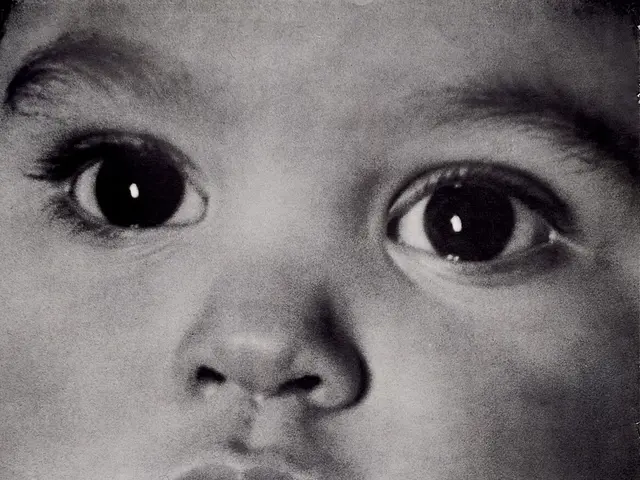Is Alcohol Consumption Preventable from Becoming an Addiction?
Let's Talk About Alcoholism: Prevention and Awareness
Listen up, folks! You might not know this, but in the US, about 58 million people aged 12 and above engaged in binge drinking back in 2011. That's some scary numbers!
According to the 2011 National Survey on Drug Use and Health compiled by the US Substance Abuse & Mental Health Services Administration (SAMHSA), binge drinking is defined as having five or more drinks on a single day within the past 30 days. The study found that nearly one-quarter (22.6%) of people in this age group participated in these destructive behaviors.
So, what's the big deal about binge drinking? It's important to be concerned because it can lead to a host of long-term health problems, such as liver damage, alcohol poisoning, and even death. This becomes especially concerning when we realize that alcoholism can be largely preventable.
Education is Key
The Centers for Disease Control and Prevention (CDC) emphasizes the importance of educating the youth on the dangers of alcohol abuse. Research shows that youth who start drinking before the age of 15 are five times more likely to develop alcohol dependence or abuse later in life.
By educating the younger generation about the potential risks associated with alcohol consumption, we can help them make well-informed decisions about whether or not to engage in alcohol use. This knowledge could potentially steer them away from the dangerous habit of binge drinking.
Breaking the Habit: Abstinence and Moderation
It's evident that prevention is better than a cure. Abstaining from alcohol is probably one of the most effective ways to prevent alcoholism. This can be achieved by avoiding places where alcohol is served, and choosing non-alcoholic drinks instead.
On the other hand, if complete abstinence isn't possible, drinking in moderation might be a less harmful approach. Moderate drinkers neither drink to become intoxicated nor excessively consume alcohol. Instead, they may choose to drink to experience increased social communication and reduced self-consciousness – as long as they stay within the recommended limits.
For men, these limits are no more than 4 drinks on any single day and no more than 14 drinks per week, whereas women are advised to limit their intake to 3 drinks per day and 7 drinks per week.
Mental Health Matters
It's also worth noting that mental health disorders often go hand-in-hand with alcoholism. The US National Alliance on Mental Illness (NAMI) states that about half of individuals with severe mental disorders suffer from substance abuse, and 29% of all mentally ill individuals abuse alcohol or drugs.
Addressing mental health disorders through methods like depression and schizophrenia treatment can play a significant role in the prevention of alcohol abuse and alcoholism. Effective counseling, medical treatment, and psychotherapy can help manage mental illnesses and reduce the risk of turning to alcohol as a form of self-medication.
Help for Those Struggling with Alcoholism
If you or someone you know is struggling with a drinking problem, don't despair. There's always hope for a brighter future. We can help you access top-notch private alcoholism treatment centers in South Africa, the United Kingdom, and Thailand. Reach out to us, and one of our qualified addiction counselors will be happy to assist you in finding the best help available.
Together, we can work towards creating a world free from the destructive grip of alcoholism. Let's empower ourselves and our loved ones with knowledge and support to make positive choices and live happier, healthier lives.
- The alarming statistic from 2011 shows that approximately 58 million Americans aged 12 and above had engaged in binge drinking, which can lead to a multitude of long-term health problems.
- Binge drinking is defined as consuming five or more drinks on a single day within the past 30 days, according to the 2011 National Survey on Drug Use and Health by SAMHSA.
- Education about the dangers of alcohol abuse is crucial, as youth who start drinking before the age of 15 are five times more likely to develop alcohol dependence or abuse later in life.
- Abstaining from alcohol or drinking moderately are effective ways to prevent alcoholism, with men advised to limit their intake to no more than 4 drinks on any single day and 14 drinks per week, and women to limit their intake to 3 drinks per day and 7 drinks per week.
- Mental health disorders often accompany alcoholism, with around half of individuals with severe mental disorders suffering from substance abuse, and 29% of all mentally ill individuals abusing alcohol or drugs.
- Effective counseling, medical treatment, and psychotherapy can help manage mental illnesses and reduce the risk of turning to alcohol as a form of self-medication.
- If someone is struggling with a drinking problem, help is available from top-notch private alcoholism treatment centers in South Africa, the United Kingdom, and Thailand.
- By educating ourselves and our loved ones about the risks of alcoholism and mental health disorders, and seeking help when needed, we can work towards creating a world free from the destructive grip of addiction and promoting overall health-and-wellness, including mental health and nutrition, through healthy diets and lifestyle choices.







